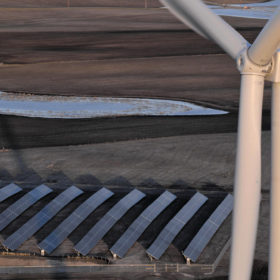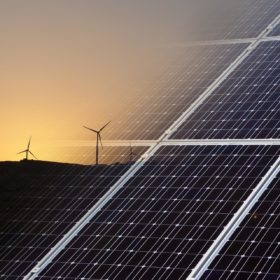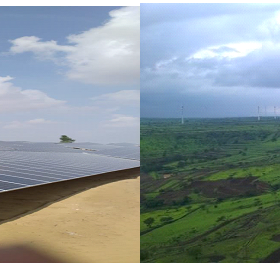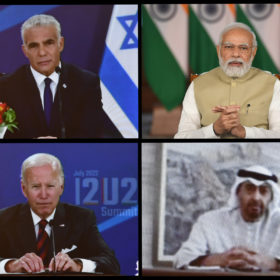The long read: What does India’s National Wind-Solar Hybrid Policy mean?
In May 2018, India’s Ministry of New and Renewable Energy adopted the National Wind-Solar Hybrid Policy. Though paltry when it comes to offering incentives or preferential treatment to solar-wind-hybrid (SWH) projects, the policy aims to enable more SWH projects to efficiently utilize transmission infrastructure and land, as well as reducing variability in renewable generation and thus improving grid stability.
UPL partners CleanMax on 61.05 MW wind-solar project for self-consumption
UPL, a Mumbai-based sustainable agricultural solutions provider, will commission a 61.05 MW captive wind-solar project in a joint venture with developer CleanMax. The project will be located in Gujarat.
SECI tenders 2.25 GW of round-the-clock power from renewable hybrids
Prospective developers in Solar Energy Corp. of India’s latest tender will set up renewable energy projects to supply round-the-clock power. The projects can be located anywhere in India. Bidding closes on Oct. 10.
KPI Green ventures into wind-solar project development
Gujarat-based KPI Green Energy is developing a 16.10 MW wind-solar hybrid power plant in Gujarat. It expects the project to go online in March 2023.
Tata Power Delhi Distribution tenders 510 MW of wind-solar hybrid projects
Tata Power Delhi Distribution has launched a tender to develop 510 MW of grid-connected wind-solar hybrid projects, including 255 MW under a greenshoe option, on a build-own-operate basis. It will procure the generated power under a 25-year power purchase agreement.
ReNew secures $1 billion loan for 1.3 GW renewables project
ReNew Power, a Nasdaq-listed Indian developer, has secured $1 billion in external commercial borrowings for a 1.3 GW wind-solar energy project, backed by up to 100 MWh of battery storage. The project is co-owned by Japanese investor Mitsui and will supply round-the-clock power under a 25-year power purchase agreement.
JSW Energy to acquire 1.7 GW of operational renewables from Mytrah Energy
JSW Energy, a private-sector power producer, has revealed that its green energy arm has signed an agreement to acquire 1.33 GW of wind and 422 MW of solar assets from Mytrah Energy. The assets are spread across nine states in India.
Tata Power switches on 225 MW hybrid project
The hybrid renewable energy project will supply power to Tata Power’s Mumbai distribution company under a 25-year power purchase agreement.
Israel, USA, UAE to support 300 MW wind-solar-storage project in Gujarat
The United States and Israel have the opportunity to provide clean energy solutions for the 300 MW wind-solar project complemented by a battery energy storage system. United Arab Emirates-based companies will explore participation as knowledge and investment partner.
Tata Power wins 600 MW wind-solar hybrid project in Karnataka
Tata Power arm TP Saurya has secured the letter of award to build a 600 MW wind-solar project in Karnataka. This project is the latest addition to the company’s hybrid power portfolio after winning a 300 MW capacity from Maharashtra State Electricity Distribution Company Ltd last year.











